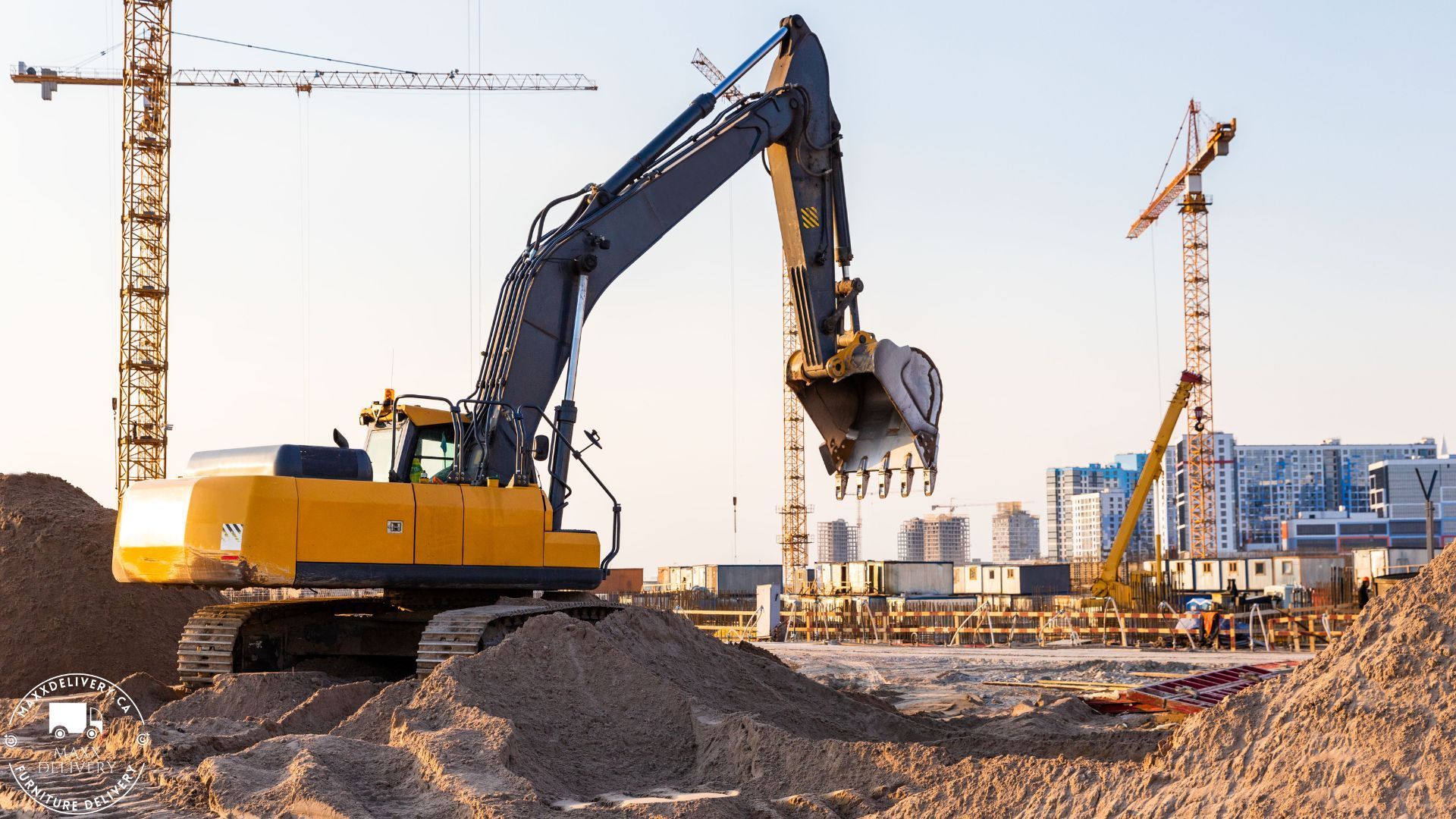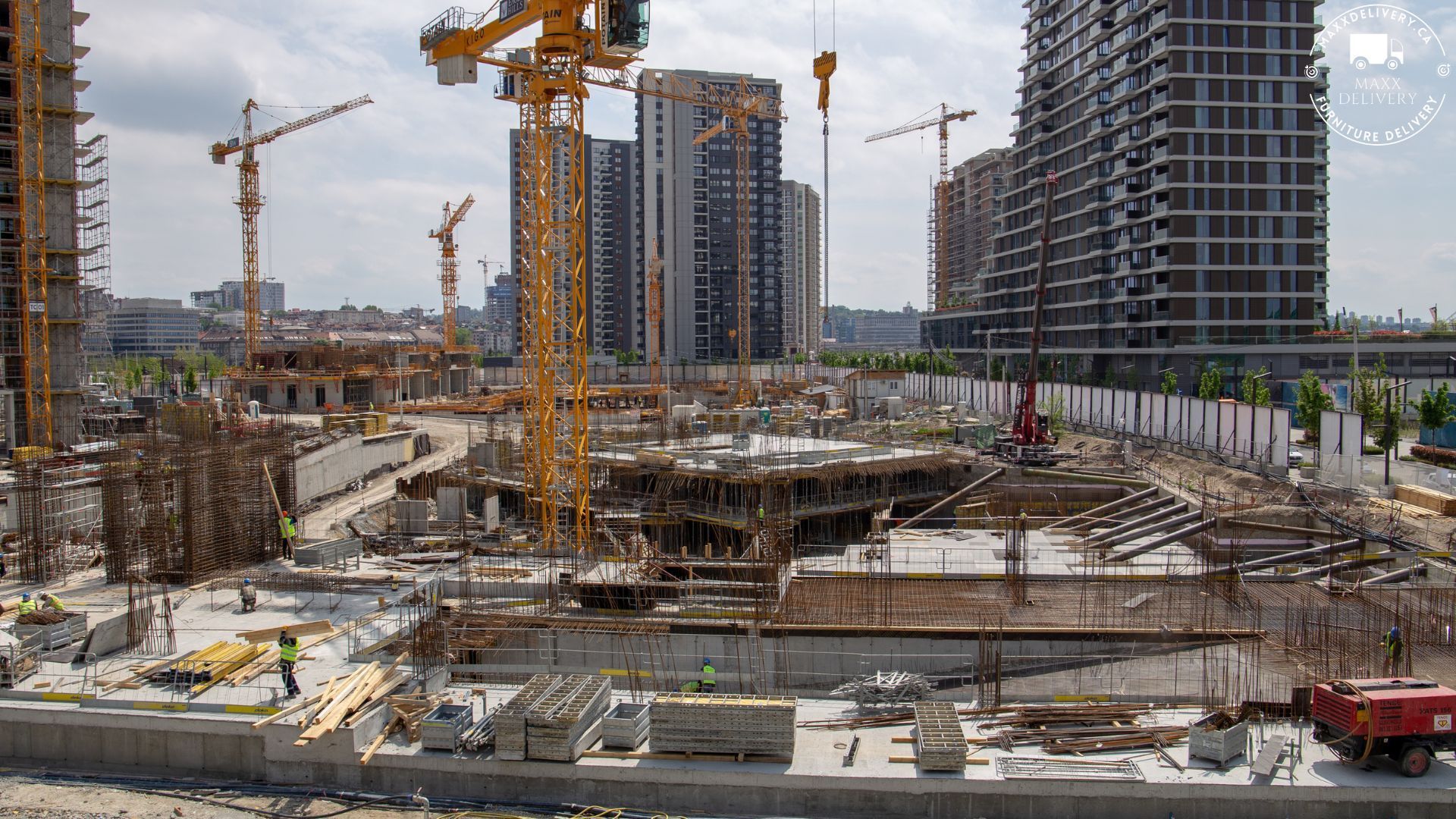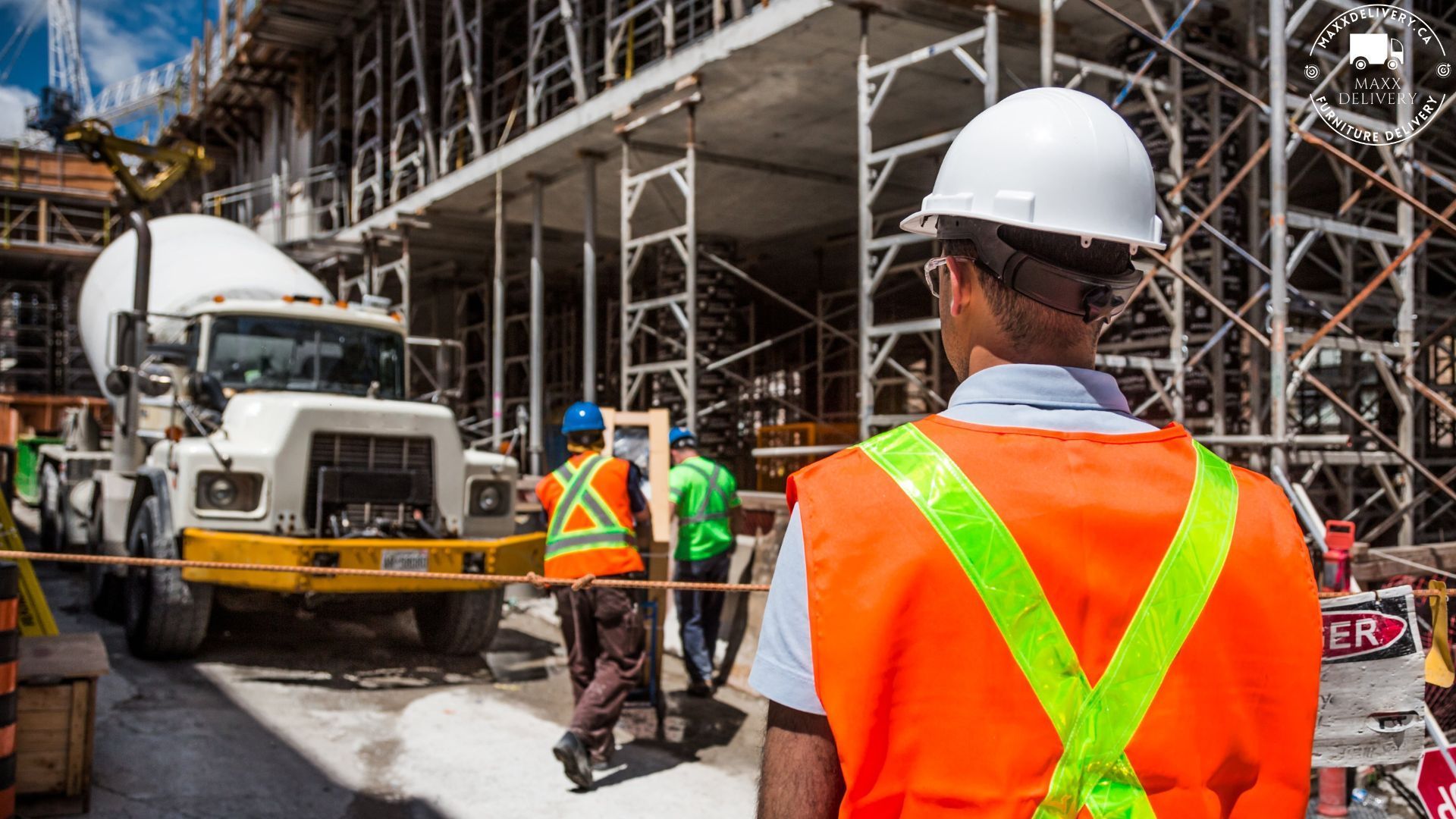Transform Your Construction Project with Last-Mile Material Delivery Solutions
The pandemic dramatically reshaped industries worldwide, ushering in a new era of convenience, immediacy, and customer expectations. Among the sectors transformed by these shifting demands is the construction materials industry, which has seen rapid growth in delivery services. Whether it’s pharmaceuticals, or groceries, businesses have raced to meet the growing appetite for on-demand delivery. Construction materials, too, are part of this transformation, and the rise of specialized delivery services is redefining how construction projects are managed and completed. The demand for quicker, more efficient construction materials delivery has led to the launch of several startups, securing millions in investments over the past few years. These companies offer streamlined logistics for construction materials, ensuring they reach job sites on time, every time. In this article, we’ll delve into how these delivery models work, the benefits they bring to the construction industry, and the key players who are leading this trend. We’ll also explore the challenges they face and the technological innovations powering this sector.

The Construction Materials Delivery Business Model
In today’s fast-paced world, time is money, and nowhere is this more true than in construction. Traditionally, contractors and site managers would lose valuable time and labor when workers left job sites to retrieve materials. Now, with last-mile construction materials delivery, businesses can focus on the job at hand while their materials are brought directly to them. Most startups in this sector operate on a gig economy model, employing independent contractors and using software to track orders in real time.
These services generally cater to smaller orders, those that can fit in a van or pickup truck. The logistics are handled via software that tracks deliveries, updates customers, and optimizes routes. What makes these startups stand out is their ability to solve the pressing problems that have long plagued the construction industry, including delays, inefficiencies, and labor costs associated with traditional supply chains. But the biggest benefit? Materials are delivered precisely when and where they’re needed, allowing projects to run smoother and more efficiently.
Why Last-Mile Delivery Matters in Construction
Why does last-mile delivery matter so much in construction? Simple: because a delay in delivery can throw an entire project off schedule, leading to increased costs and missed deadlines. The last mile refers to the final stage of the delivery process, where materials are transported from the nearest distribution center to the construction site. This stage can account for up to 50% of total delivery costs, not to mention the indirect costs associated with project delays. If workers have to stop what they're doing and head out to pick up supplies, you’re looking at even more wasted time and resources.
But with last-mile construction materials delivery, contractors don’t have to worry about storing excessive materials on-site or sending workers on time-consuming trips. With the ability to order exactly what’s needed, when it’s needed, construction teams can optimize their workflow and avoid costly downtime. Furthermore, real-time tracking and precise delivery locations ensure that materials get to the job site on schedule, even if the site is hard to access or lacks an official address on Google Maps.

Key Players Shaping the Future of Construction Logistics
The surge in construction materials delivery is a revolution led by a number of innovative companies. Here are some of the key players that are driving this sector forward:
1. TOOLBX: Founded by Erik Bornstein in Toronto, TOOLBX has been at the forefront of construction delivery innovation. After working in construction for 15 years, Bornstein realized how much time and money were being lost when workers had to leave job sites to gather supplies. TOOLBX saw a massive spike in demand during the pandemic and has since expanded into Vancouver, with plans to break into the U.S. market.
2. Curri: A Southern California-based company that exploded onto the scene after graduating from Y Combinator, Curri has leveraged its gig economy model to deliver construction materials across the U.S. With Series A funding of $6 million in 2021, Curri uses independent contractors and smart logistics to ensure high-priority deliveries reach construction sites quickly and efficiently.
3. GoFor: Ottawa-based GoFor offers flexible delivery options for construction sites that don’t need large quantities of materials. Founded by Brad Rollo, a former construction worker who saw the inefficiencies in material deliveries, GoFor raised $9.9 million CAD by 2020 and has rapidly become one of Canada’s fastest-growing companies.
4. GoShare: Originally envisioned as a vehicle-sharing platform, GoShare refined its model to focus on last-mile truck deliveries for construction and non-commercial customers. As of 2021, it was operating in 33 U.S. cities and had raised $8 million in seed funding.
5. 49VAN: Another Canadian company, 49van.com, has taken a subscription-based approach, offering same-day delivery to contractors who sign up for their service. With expansion into major U.S. cities like Boston and Chicago, 49VAN is making it easier for construction teams to keep their projects on schedule without leaving the site to chase down materials.
Supercharge Your Construction Projects with Material Delivery Services !
In Toronto’s competitive construction industry, staying on schedule and within budget is crucial for project success. A specialized material delivery service plays a vital role in making sure your project runs smoothly from start to finish. With on-demand, customized deliveries tailored to your specific project needs, you can avoid the common pitfalls of construction delays and wasted time. The service integrates directly into your workflow, delivering materials precisely when and where they’re needed, preventing costly downtime. This precision helps you stay on track with tight deadlines, allowing you to focus on building rather than worrying about logistical setbacks. By synchronizing deliveries with your project’s key milestones, a specialized service not only boosts your productivity but also enhances overall efficiency. Moreover, this approach means that you’re gaining a logistical partner who adapts to the dynamic needs of your construction project. The result? A more streamlined, cost-effective operation that reduces stress and keeps your team focused on what matters most: delivering quality results on time. Whether you’re working on a large-scale development or a smaller project, having reliable, efficient material delivery can be the difference between a smooth build and a series of costly delays.

Overcoming the Challenges of Last-Mile Delivery
While the construction materials delivery sector is growing rapidly, it’s not without its challenges. Timeliness is absolutely critical in this industry. A late delivery can result in project delays, additional costs, and even penalties. One construction company in the US, for example, incurred a hefty $15,500 fine for missing a project deadline due to a late delivery.
The challenge for these delivery companies is managing a distributed workforce of contractors while ensuring that deliveries arrive on time. Word-of-mouth referrals and online reviews can make or break a business in this space, so reliability is key. To overcome these challenges, companies are investing in software that automates key parts of the delivery process, such as route planning and dispatch, while maintaining seamless communication between drivers and customers.
How Technology is Powering the Future of Construction Logistics
In an industry where efficiency is everything, technology is the backbone of success. To stay competitive, construction materials delivery startups are turning to sophisticated software solutions like Onfleet to manage their operations. Onfleet’s platform offers a range of features that help companies optimize their delivery processes:
- Route Optimization: Drivers can avoid traffic and road closures, ensuring materials arrive quickly and on time.
- Proof of Delivery: Construction materials are often high-value, and proof of delivery is essential. With Onfleet, drivers can take photos and document deliveries on-site.
- Auto-Dispatch: This feature automatically assigns delivery tasks to the best-positioned drivers based on their location and availability.
- Customer/Driver Communication: Onfleet’s secure messaging system allows customers and drivers to stay in touch without revealing personal information.
- Analytics: By analyzing delivery data, companies can identify trends and areas for improvement, ensuring continuous optimization of their services.

A Future of Growth and Opportunity
As the construction materials delivery industry continues to grow, companies that can leverage technology and provide reliable, efficient service will dominate the market. The demand for these services is only expected to increase as construction projects become more complex and the need for on-demand, just-in-time deliveries intensifies. The startups that lead the pack, like TOOLBX, Curri, and 49VAN, are showing the world how modern logistics can transform even the most traditional industries. By focusing on customer satisfaction, embracing innovative technology, and maintaining a sharp focus on efficiency, these companies are setting a new standard for how construction projects are managed and completed. The future of construction materials delivery looks bright. With continued advancements in logistics technology and a growing focus on meeting the demands of modern contractors, this sector is poised for even greater growth in the coming years. Whether you’re a contractor looking to optimize your workflow or a logistics company exploring new opportunities, now is the time to embrace the future of construction materials delivery.
MaxxDelivery Moving and Delivery Tips and Blog











